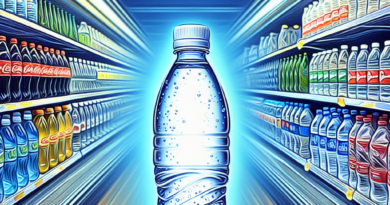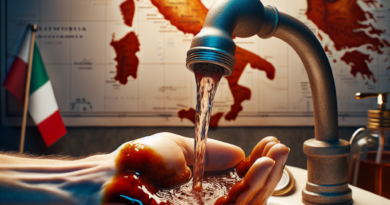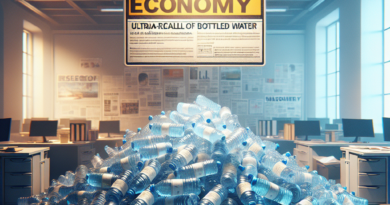Anyone who drinks tap water needs to know the 4-hour rule
In Italy, except in very rare cases, tap water is drinkable and it is therefore possible to drink it safely without health risks.
Even today, however, despite the green light from the relevant bodies, there are still many people who do not trust it and every day buy bottled water with a very high impact on the climate, especially if they are plastic bottles.
The water that flows from our taps is subjected to continuous checks by the authorities to ensure that there are no levels of bacteria or heavy metals above the threshold that would compromise safety.
However, there is one thing that you need to keep in mind before drinking water from the tap and that is the 4 hour rule.
This is a rule, recommended by experts, to minimize health risks.
Here's how it works.
How the 4-hour water rule works Although tap water is controlled in Italy, bacteria, germs or other harmful substances can still accumulate in the taps.
This happens especially when the water does not flow from the taps for a long time.
This is why experts recommend adopting the 4-hour rule before drinking.
In practice, if a tap has not been opened for a long period of about 4 hours, it is necessary to drain the "old" water from the tap until it comes out cold.
In this way we will chase away the stagnant water present in the pipes which could contain germs, bacteria and accumulated harmful substances.
This can take about 30 seconds but is usually much quicker.
Be careful though because although tap water is very cheap it should absolutely not be wasted.
Opening the tap for 30 seconds and letting it run involves a considerable waste.
This is why water that is not suitable for human consumption should still be stored and used for other purposes such as cleaning or washing dishes.
What are the risks for those who drink non-potable water? Non-potable water such as that which might flow from taps poses risks if drunk.
First of all it must be said that water is considered non-drinkable when it contains high levels of pathogenic microbes, such as bacteria, viruses and parasites and in this case we are talking about biological pollution or heavy metals, nitrogen compounds, microplastics, pesticides and antibiotics and in this case we are talking about chemical pollution.
The consequences for human health if non-potable water is consumed in the case of biological pollution range from intestinal problems such as diarrhea and stomach ache while more rarely water contaminated by microorganisms can cause infections of other organs.
Symptoms appear after a few hours and people usually recover completely after a few days.
In the case of chemical pollution, the symptoms often appear years later, since these substances have medium-long term effects.
Depending on the component, the consequences can also be serious such as the development of particular types of tumors.
read also This famous bottled water contains bacteria and contaminants




